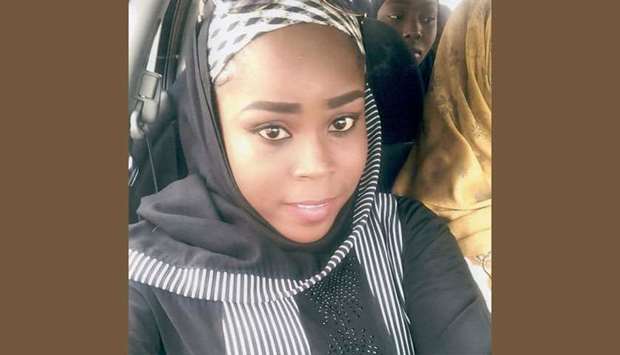Islamic State-allied Boko Haram jihadists have killed another kidnapped female Red Cross worker in northeast Nigeria in a "despicable act of cruelty", the agency said on Tuesday, a month after militants murdered one of her colleagues.
Three female health workers were kidnapped on March 1 during a Boko Haram raid on the remote town of Rann, in Borno state, that killed three other aid workers and eight Nigerian soldiers.
Two of the kidnapped women, Hauwa Liman and Saifura Khorsa, worked for the International Committee of the Red Cross (ICRC), while the third, Alice Loksha, worked for the UN children's agency, UNICEF.
The ICRC said on Tuesday it had received information Liman had been killed by her captors, without giving further details. The government had also earlier announced news of the second killing.
"The news of Hauwa's death has broken our hearts," ICRC's Regional Director for Africa, Patricia Danzi said in a statement.
"We appealed for mercy and an end to such senseless murders. How can it be that two female health care workers were killed back-to-back?"
There had been no news of the trio until last month when the ICRC said it had received footage of Khorsa's killing from the IS-backed Boko Haram faction Islamic State West Africa Province (ISWAP).
ISWAP then threatened to kill Liman and Loksha, as well as a 15-year-old Christian schoolgirl Leah Sharibu who was kidnapped from the town of Dapchi, in Yobe state, in February.
The ICRC last weekend appealed for their release underscoring that they were "doing nothing but helping communities" in the conflict-riven region.
But Nigeria's Information Minister Lai Mohammed earlier announced the latest death as a deadline expired and said the government was "shocked and saddened" at the killing, calling it "dastardly, inhuman and ungodly".
He did not initially identify the victim but later added in a tweet that he "commiserated with the family of Hauwa Liman".
Line open for negotiations
"It is very unfortunate that it has come to this. Before and after the deadline issued by her abductors, the federal government did everything any responsible government should do to save the aid worker," he said.
"As we have been doing since these young women were abducted, we kept the line of negotiations open all through. In all the negotiations, we acted in the best interest of the women and the country as a whole."
He said officials continued to work to free the others from captivity.
More than 27,000 people have been killed in northeast Nigeria since the Boko Haram insurgency began in 2009, while nearly two million others remain homeless due to the conflict.
Nigeria's military and government maintain the Islamist rebels are weakened to the point of defeat but fighters from the IS-backed faction have conducted repeated raids on military bases in recent months.
ISWAP split from the faction led by long-time Boko Haram leader Abubakar Shekau in August 2016 in protest at the latter's indiscriminate targeting of civilians in raids and suicide bombings.
Analysts say they believe the switch by militants from attacking "hard" government and military targets to killing hostages is the result of a hardline takeover of the IS-backed faction.
Boko Haram has used kidnapping as a weapon of war during the conflict, abducting thousands of women and girls, and forcing young men and boys to fight in their ranks.
The mass abduction of more than 200 schoolgirls from the Borno state town of Chibok in April 2014 brought global attention to the insurgency and was widely condemned. Some 107 girls have since been released or found.

